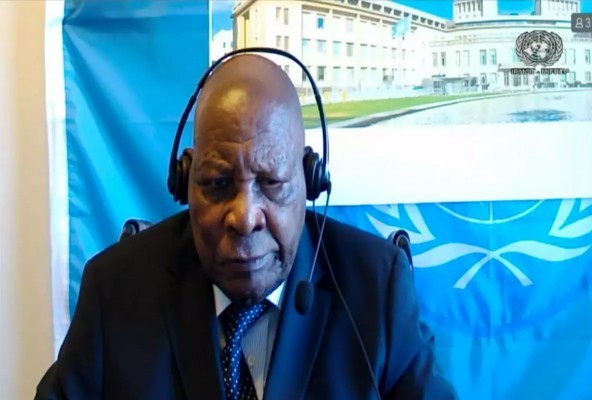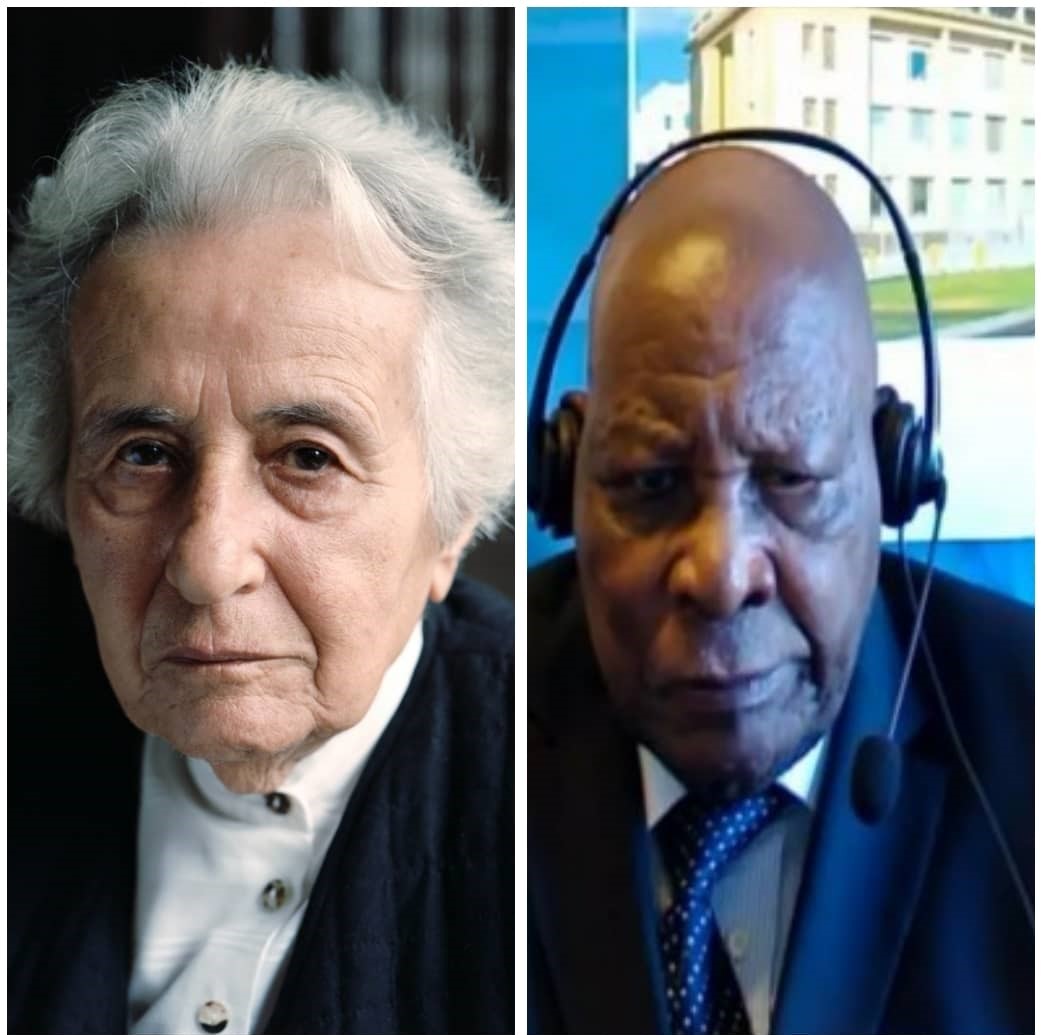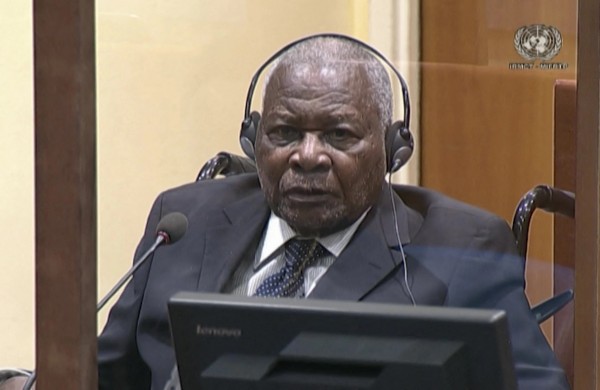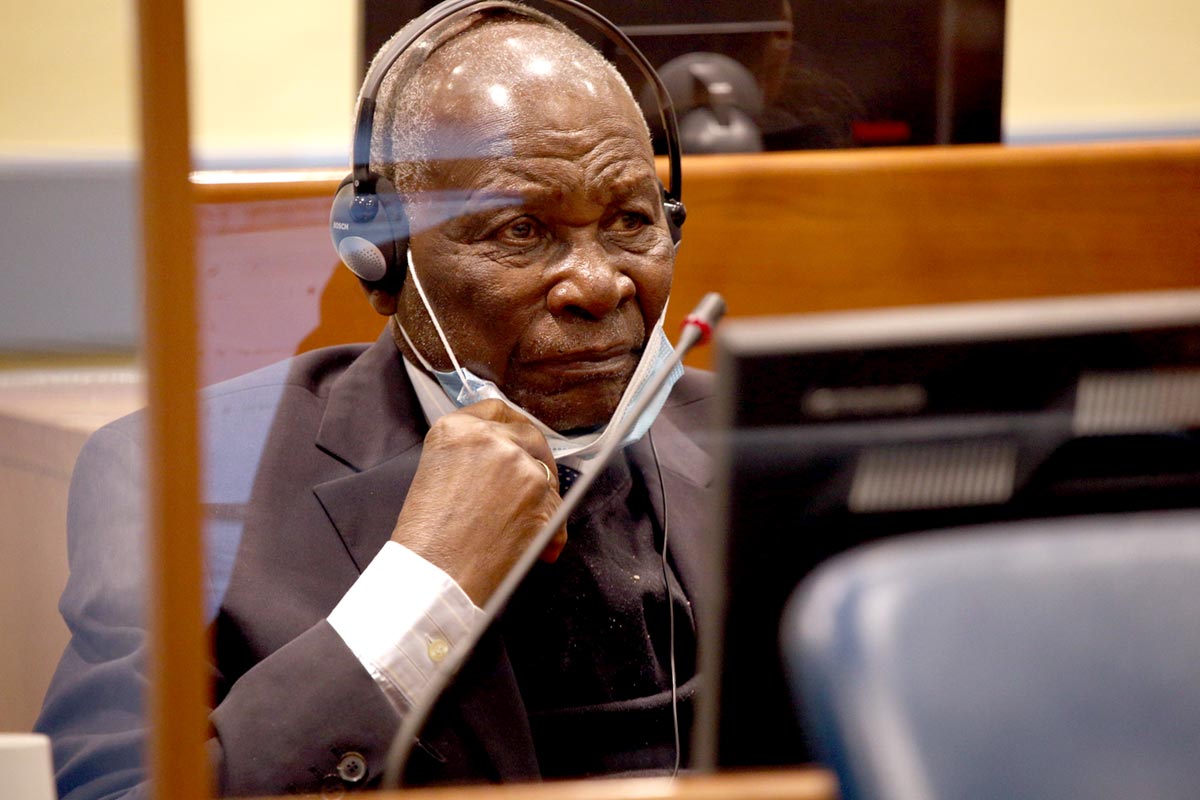International
Why trial of facts in genocide suspect Kabuga’s case makes sense for Rwandans

The
decision by the Appeals Chamber of the International Residual Mechanism for
Criminal Tribunals in The Hague that genocide suspect Félicien Kabuga is “unfit
to stand trial” due to deteriorating
health conditions was shocking to Rwandans.
Survivors
of the 1994 genocide against the Tutsi were especially shocked that the main
genocide financer will not be held responsible for the crimes of genocide
against the Tutsi. Kabuga, who earlier had a $5 million bounty on his head, was
one of the most wanted genocide suspect. To be released without trial is
abrogation of justice.
It is as
if someone, behind the scenes, prepared a script with details of how the most
wanted genocide suspect would be dramatically arrested after almost three
decades on the run, and how his release would later be played out so that he is
not judged for having played a key role in planning and financing the genocide
against the Tutsi.
Kabuga
is not the first suspect to be deemed “not fit to stand trial” in criminal
justice either genuinely or by faking illness. For a person who has been on the
run for close to three decades and changing identity, after capture, faking
illness would be the expected last resort to evade justice.
The case of Kabuga resembles that of Vincent
Gigante, popularly known as “The Oddfather” in New York and American history,
as one of the most dangerous mafia bosses who feigned insanity for more than three decades to
avoid jail.
Gigante
wandered
around Greenwich Village in his pajamas and bathrobe, talking to parking
meters, and urinating in the street. Psychologists and other mental health
professionals falsely attested to Gigante’s condition, claiming that he had
been in and out of psychiatric hospitals more than two dozen times between 1969
and 1995.
Gillian
Mezey, a professor of forensic psychiatry at St George's University Hospitals
in the UK, said that Kabuga is
not fit to plead, understand evidence, and meaningfully participate in a court
hearing.
Vincent
was a rich man whose criminal enterprise brought in
around $100 million a year.
He bribed his way into feigning madness.
Kabuga was also a wealthy businessman man who used his money to
finance genocide and bribed his way to evade arrest, and when it came, it
played out like a movie script.
Kabuga’s arrest in 2020
in a Paris Suburb of
Asnières-sur-Seine on the third floor in an apartment where he lived under a
false identity mimicked a scene of a Holly Wood movie. French authorities
dramatised his arrest; making it look like he had outwitted UN prosecutors for
decades by using 28 aliases and powerful connections across two continents, as
well as his children, to evade capture.
Kabuga is known to have at least five children,
with two of his daughters married to sons of the genocidal regime’s president,
Juvenal Habyarimana. In just 100 days, in 1994, Habyarimana’s regime, aided by genocide
ideologues like Kabuga, massacred more than one million Tutsi in Rwanda.
When he was arrested, it was hard to believe
that for so many years, one of the most wanted fugitives in the world managed
to live in subterfuge and evade law enforcement across Europe.
Security experts opine that it is hard to
believe that the arrest of Kabuga happened as a surprise to French authorities.
Similarly, Kabuga’s release is cloudy and as suspect as his arrest.
The trial of facts is a process that takes the
place of a criminal trial, with a hearing to determine
whether an accused committed the crimes for which an indictment is issued. Although the trial of facts does not result
in a conviction, in the case of Kabuga, it would be important to determine his
role and responsibility in financing and supporting the genocide against the
Tutsi. Otherwise, his release without determining responsibility leaves Kabuga
an innocent man, hence setting a dangerous precedent regarding providing
justice for the victims of the genocide against the Tutsi.
There is enough evidence, for example, to prove that Kabuga
was the driving force and main shareholder of the hate radio - Television
Libre des Mille Collines (RTLM), which urged Interahamwe militia to hunt and
kill the Tutsi with machetes.
This is
a provable fact whether Kabuga is dead or alive and, therefore, his incapacity
to stand trial cannot stop the court from making a conclusion on the matter
based on available facts and evidence.
The
court has documents showing the names of shareholders in RTLM and the amount of
shares they held. These are facts that can be proved beyond reasonable doubt
and do not require Kabuga to make a personal plea. Another fact that can be
looked at relates to the motive of Kabuga declining to face trial to address charges
against him, but decides to hide for decades under false identity. Why would he
evade justice and change his identity knowing that he is innocent?
The
determination of these facts by the court would provide relief and justice to
millions of Rwandans, who believe that if Kabuga did not sponsor RTLM and use
his wealth to bankroll genocide, the victims of the genocide against the Tutsi
would not have reached more than one million people. Radio RTLM amplified the
hate and hunt for the Tutsi to be killed.
For
the Appeals Chambers’ judges in The Hague to
reject a request by prosecutors for a “trial of facts,” which provides an
alternative procedure, is simply an abrogation of justice.
It is a conspiracy to shield genocide suspects at
the expense of justice for genocide survivors.





.jpeg-20230127112648000000.jpeg)



